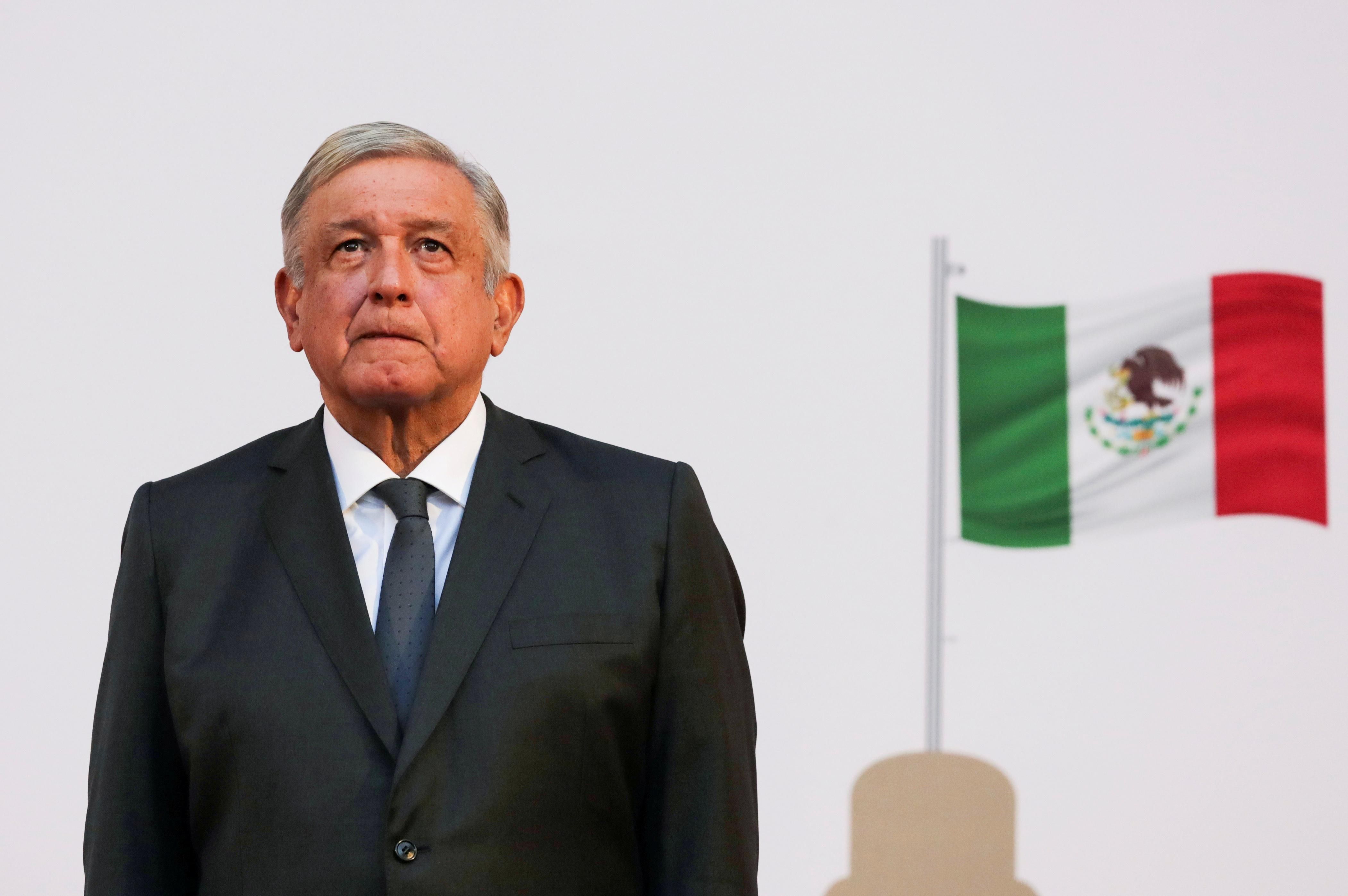March 03, 2021
It's not like things are going well in Mexico.
COVID has killed more people there than in any country except the United States and Brazil. Just 2 percent of Mexicans have gotten a first vaccine jab, compared with nearly 24 in the US. The Biden administration made clear this week that it won't send vaccines to its southern neighbor until many more Americans have been vaccinated. Mexico's government has cut deals for doses from China, Russia, and India.
The pandemic has weighed heavily on Mexico's economy. In 2020, GDP fell more sharply than in any year since 1932. The first wave of coronavirus killed 12 million formal and informal jobs, and later waves have slowed the employment recovery. (Nearly 30 million people work in Mexico's informal economy.)
Deadly violence and organized crime continue to plague the country. Murder rates remain historically high across Mexico. In the state of Jalisco, 10 men and a boy died in a hail of gunfire on February 27 in an attack blamed on competition among competing drug cartels. Add their names to the 189 found murdered in that one state last year and the 18 plastic bags full of body parts discovered there in early February.
It's no wonder then that Mexico's government has weak poll numbers. A survey (Spanish) published this week by El Financiero found that just 42 percent of Mexicans surveyed said their government was doing a good job managing the pandemic, and 30 percent reported a positive view of its economic policies.
But... that same poll gave Mexico's president, Andres Manuel Lopez Obrador, an approval rating of 63 percent, up from 61 percent in January. As he approaches the midpoint of his single six-year term — Mexico's presidents are limited to one term — the president who promised to revitalize Mexico's economy, tackle violent crime, fight corruption, and create new opportunities for the poor and marginalized seems immune to political blame.
Why is he still so well-liked? In part, it's because Mexico's political establishment, which ran the country for decades before Lopez Obrador was elected in 2018, remains deeply unpopular because many Mexicans say past governments were profoundly corrupt.
It's also because he's an authentically talented politician. Lopez Obrador's COVID response is justly criticized: He's encouraged Mexicans to continue business as usual even as the virus was spreading, and he consistently refused to wear a mask. Few were surprised when he contracted COVID-19.
But when asked why he had left himself vulnerable, he reminded voters that he had refused to break in line for early vaccination and insisted he became infected by showing up for work, as hard-working Mexicans do. Some may doubt his judgment, but recent polls say a solid majority of Mexicans consider him honest.
And no one can deny his common touch. Lopez Obrador does more than share a love of baseball with millions of Mexicans. He's shown himself willing to grab a bat and take his turn at the plate. He might need some coaching on keeping his weight on the back foot, but Mexico's 67-year-old hombre del pueblo can still drive a baseball.
Mexico faces elections on June 6. Voters will fill every seat in Mexico's lower house, and Lopez Obrador's Morena Party hopes to keep its majority. In addition, nearly half of Mexico's 32 states will choose governors. Can he remain popular enough to use his remaining three years to get things done?
Results of those elections — and the president's continuing ability to beat the political odds — will tell the tale.
More For You
Ian Bremmer sits down with former US Ambassador to NATO Ivo Daalder to unpack a historic shift in the transatlantic alliance: Europe is preparing to defend itself without its American safety net.
Most Popular
Think you know what's going on around the world? Here's your chance to prove it.
U.S President Donald Trump, U.S. Vice President JD Vance, and U.S. Secretary of State Marco Rubio pose for a family photo with other representatives participating in the inaugural Board of Peace meeting, at the U.S. Institute of Peace in Washington, D.C., U.S., February 19, 2026.
REUTERS/Kevin Lamarque
Argentina, Armenia, Belarus, Egypt, Indonesia, Jordan, Pakistan, Paraguay, Vietnam – to name only a few.
A poster featuring Andrew Mountbatten-Windsor, formerly known as Prince Andrew, is installed on a sign leading to the parking area of the Sandringham Estate in Wolferton, as pressure builds on him to give evidence after the U.S. Justice Department released more records tied to the late financier and convicted sex offender Jeffrey Epstein, in Norfolk, Britain, February 5, 2026.
REUTERS/Isabel Infantes
British police arrested former Prince Andrew Mountbatten-Windsor today over allegations that in 2010, when he was a UK trade envoy, he shared confidential government documents with convicted sex offender Jeffrey Epstein.
© 2025 GZERO Media. All Rights Reserved | A Eurasia Group media company.
